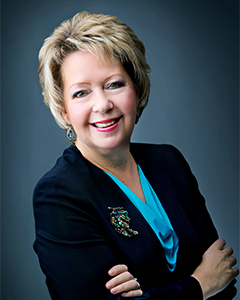Faculty Recognition Catherine Roster
 Clutter: most of us have at least a little. A stack of unopened mail on a hall table, a jumble of shoes and coats near the front door, scatterings of gadgets and containers and snacks on a kitchen counter. When clutter starts to encroach upon our day-to-day living, though – if you can’t find things when you need them, if you have to move things in order to accomplish everyday tasks, if you avoid having guests because you’re ashamed of your space, then you might be at risk of an overabundance of "stuff."
Clutter: most of us have at least a little. A stack of unopened mail on a hall table, a jumble of shoes and coats near the front door, scatterings of gadgets and containers and snacks on a kitchen counter. When clutter starts to encroach upon our day-to-day living, though – if you can’t find things when you need them, if you have to move things in order to accomplish everyday tasks, if you avoid having guests because you’re ashamed of your space, then you might be at risk of an overabundance of "stuff."
Professor Catherine Roster has made an extensive study of this topic. Her article “The dark side of home: assessing possession clutter on subjective well-being” published in the Journal of Environmental Psychology, has become a frequently-cited piece, featured in The New York Times, the Washington Post, Psychology Today, Dr. Oz The Good Life, AARP The Magazine, Scientific American Mind, and Canvas8 among others. In it, Dr. Roster and her colleagues demonstrate that clutter in the home can negatively affect one’s psychological sense of “home” and reduce overall life satisfaction.
Dr. Roster received her BA in Psychology at Missouri University of Science and Technology, her MBA at the Breech School of Business at Drury College, and her Ph.D. in Marketing with a supporting area in Psychology at the University of Missouri, Columbia. Her latest research has expanded the subject of clutter to include the workspace environment with fruitful results. A Dutch behavioral research lab conducting work on technology clutter and hearing of her work through the press reached out to her for data, spurring Dr. Roster and her research colleague to apply for an Ethics Fellowship from DePaul University to study technology clutter from the perspective of consumer ethics.
As the staff and faculty of Anderson School of Management begin their migration to the new McKinnon Center for Management, Dr. Roster says she intends to look into their experience with decluttering for a new, streamlined workspace. While possessions are a key component of our identity, she says that a cluttered workspace can lead to lower levels of job performance and work engagement. In an increasingly acquisitive society, Dr. Roster’s research could help to eventually establish a balance among possessions, ethics, and personal contentment.

